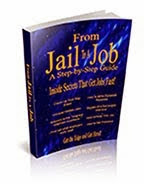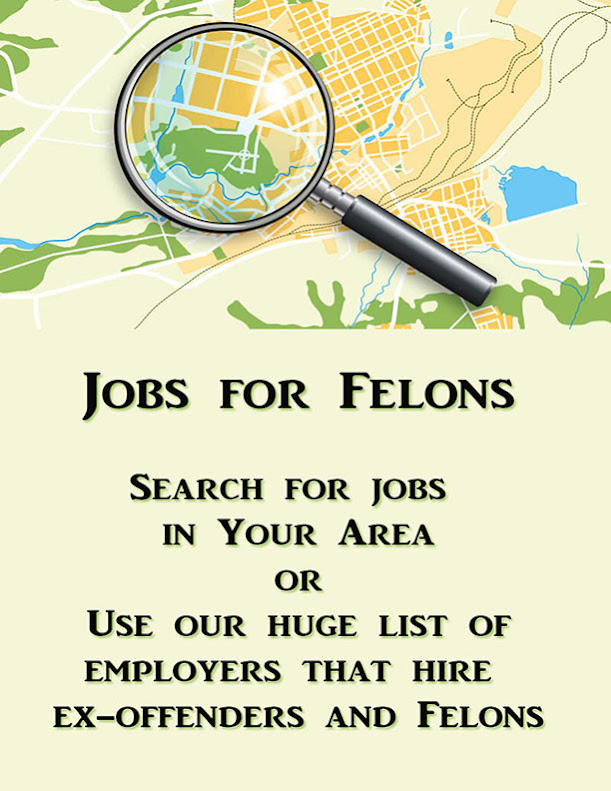Will moving to another state help a felon get a job?
Hello Mr. Mayo,
Thank you for this blog. I live in San Francisco, California. I have multiple convictions for a few things. I was talking to someone here and they told me that because I have a record in California, I should move to another state. My record will not show up in another state. I have relatives in Illinois. Will moving to Illinois help me get a job?
Karl
Will moving to another state help a felon get a job?
Hello Karl,
I am glad you are seeking another opinion and not relying on information from that person. Totally false! Your record will follow you wherever you go. In this age of computers and extensive data banks, you can find out just about anything on anyone. There are companies that exist just to sell information to anyone who will pay for it.
 A history of criminal record would include an individual's personal identifiers (descriptive information and fingerprints), arrests and subsequent dispositions (final outcome of a charge.) Dispositions are posted to the
A history of criminal record would include an individual's personal identifiers (descriptive information and fingerprints), arrests and subsequent dispositions (final outcome of a charge.) Dispositions are posted to theNational Criminal History Record File by the FBI's Criminal Justice Information Services (CJIS) Division. Not only convictions but each criminal arrest for which the CJIS Division has a fingerprint submission would be on file. So you see, your record is fairly easy to get.
There are organizations in your area that can help an ex-offender or felon looking for jobs.
Arriba Juntos
Arriba Juntos, a community-based organization in San Francisco. This organization has an employment program for ex-offenders and felons. They even offer , direct job placement for clients who have job skills. Also available in career training in computer technology, including MS Office Suite, and certified nursing assistance with the ability to obtain California licensing. The center will assist clients in obtaining licensing from the State of California. In cooperation with the San Francisco Municipal Railway they offer a driver training course. Clients may obtain their Commercial Driving License and consideration for employment with MUNI as bus drivers. These training programs include a Life Skills component, job interview techniques and resume writing in addition to daily survival skills. There may be paid on job training program that is used as an incentive to employers to hire felons and ex-offenders.
You can contact them at the address below:
1850 Mission Street
San Francisco, CA 94103
415-487-3240
415-863-9314 fax
www.arribajuntos.org
Private Industry Council of San Francisco (PIC)
Private Industry Council of San Francisco (PIC) is a non-profit organization that provides employment, training and research services to employers and job seekers in San Francisco. PIC is a public/private collaboration for workforce development. PIC contracts with over 60 community- based organizations to provide training and employment services. They may have contacts to employers who hire ex-offenders and felons who need jobs
You can contact them at the address below:
1650 Mission Street, Suite 300
San Francisco, CA 94103
415-431-8700
415-431-8702 fax
Web Site: www.oaklandpic.org
Also take a look at the video below. There are other options for finding jobs in your area.
Jobs for Ex-offenders and Felons: Where Ex-offenders and Felons Can Find Jobs
Jobs for Ex-offenders and Felons: Ten Steps to getting a Job with a Criminal record
Jobs for Felons: Know your Rights about Criminal Records check
Will moving to another state help a felon get a job?
Companies hire felons | companies that hire felons | Companies that hire ex-offenders | Employers that hire ex-offenders | employers that hire felons | Jobs for felons | jobs for ex-offenders | jobs that hire felons | places that hire felons | felon friendly jobs | felon friendly employers | how to get a job with criminal record | second chance jobs for felons | temp agencies that hire felons | high paying jobs for felons | List of companies that Hire Felons



















